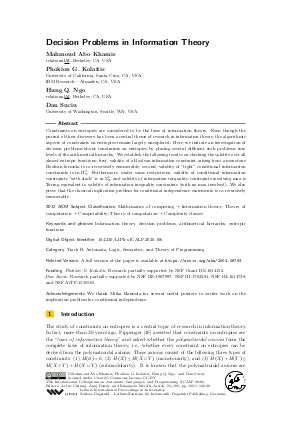LIPIcs.ICALP.2020.106.pdf
- Filesize: 0.68 MB
- 20 pages

 Creative Commons Attribution 3.0 Unported license
Creative Commons Attribution 3.0 Unported license





















Feedback for Dagstuhl Publishing